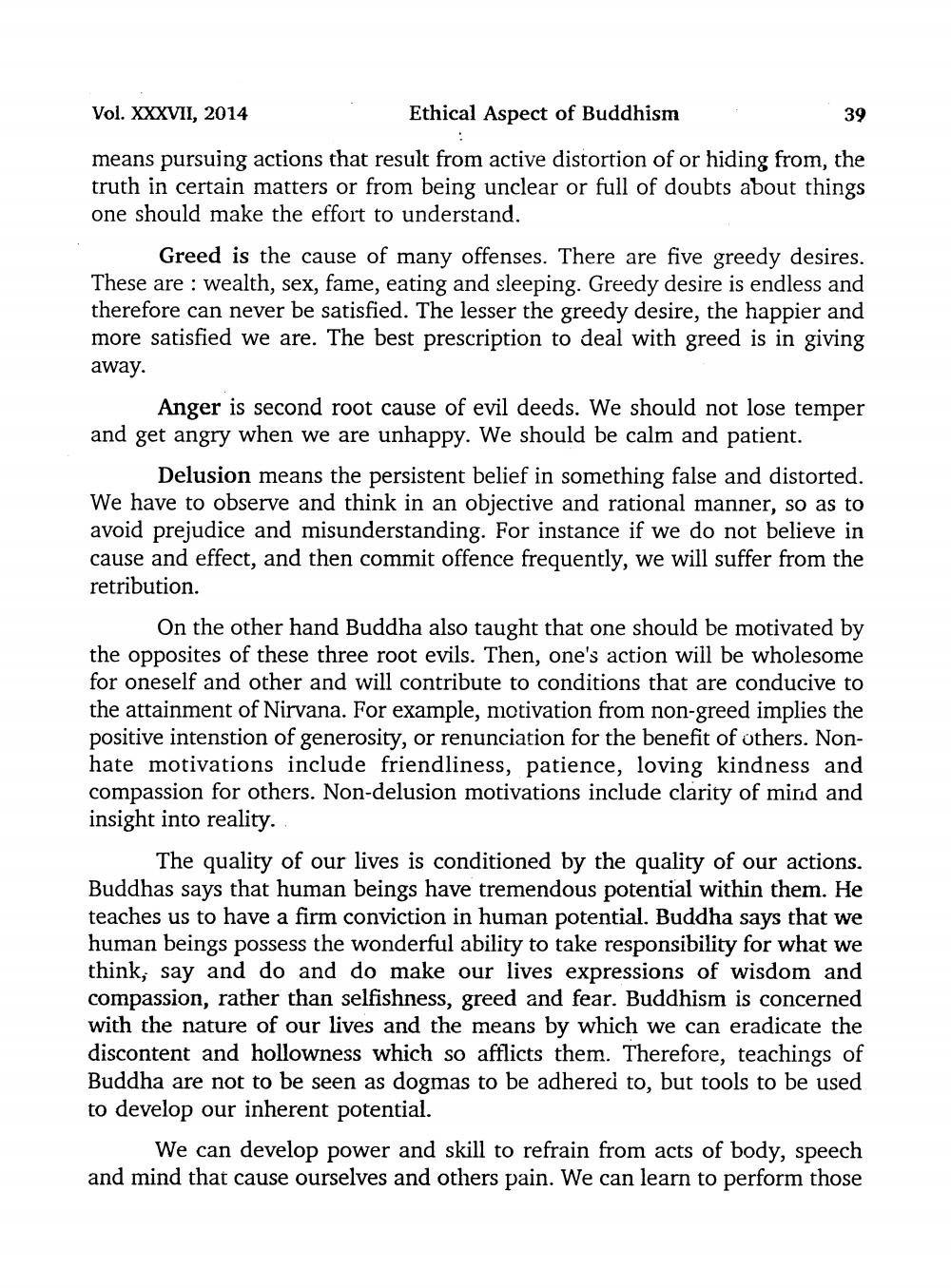________________ Vol. XXXVII, 2014 Ethical Aspect of Buddhism 39 means pursuing actions that result from active distortion of or hiding from, the truth in certain matters or from being unclear or full of doubts about things one should make the effort to understand. Greed is the cause of many offenses. There are five greedy desires. These are : wealth, sex, fame, eating and sleeping. Greedy desire is endless and therefore can never be satisfied. The lesser the greedy desire, the happier and more satisfied we are. The best prescription to deal with greed is in giving away. Anger is second root cause of evil deeds. We should not lose temper and get angry when we are unhappy. We should be calm and patient. Delusion means the persistent belief in something false and distorted. We have to observe and think in an objective and rational manner, so as to avoid prejudice and misunderstanding. For instance if we do not believe in cause and effect, and then commit offence frequently, we will suffer from the retribution. On the other hand Buddha also taught that one should be motivated by the opposites of these three root evils. Then, one's action will be wholesome for oneself and other and will contribute to conditions that are conducive to the attainment of Nirvana. For example, motivation from non-greed implies the positive intenstion of generosity, or renunciation for the benefit of others. Nonhate motivations include friendliness, patience, loving kindness and compassion for others. Non-delusion motivations include clarity of mind and insight into reality. The quality of our lives is conditioned by the quality of our actions. Buddhas says that human beings have tremendous potential within them. He teaches us to have a firm conviction in human potential. Buddha says that we human beings possess the wonderful ability to take responsibility for what we think, say and do and do make our lives expressions of wisdom and compassion, rather than selfishness, greed and fear. Buddhism is concerned with the nature of our lives and the means by which we can eradicate the discontent and hollowness which so afflicts them. Therefore, teachings of Buddha are not to be seen as dogmas to be adhered to, but tools to be used to develop our inherent potential. We can develop power and skill to refrain from acts of body, speech and mind that cause ourselves and others pain. We can learn to perform those




